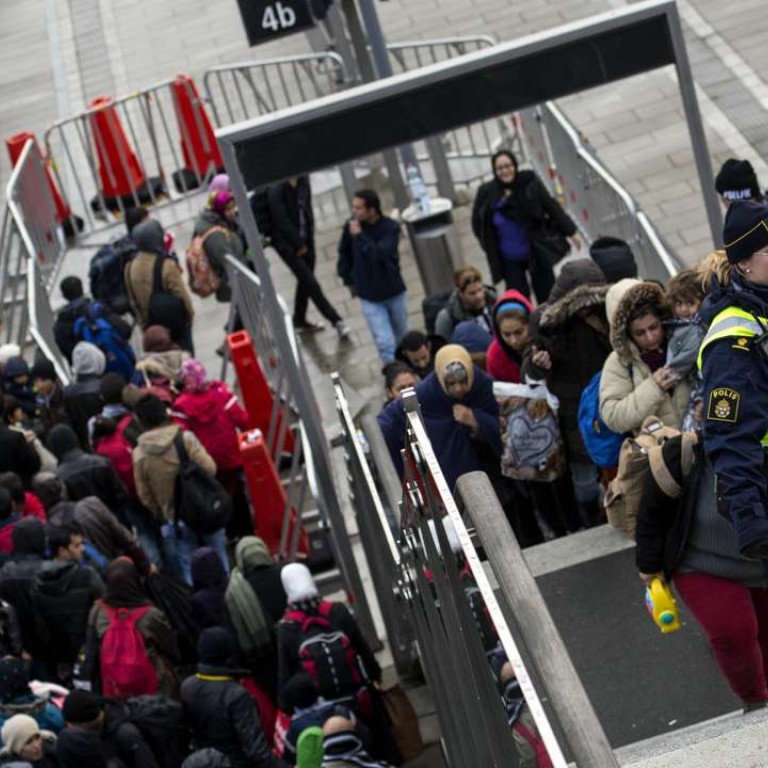
Grandmother who gave refugees a ride is branded a people smuggler, as Denmark takes hardline stance
Lise Ramslog was out for a barefoot amble on a warm day last September, when Europe’s refugee crisis came to her remote village in southern Denmark.
The 70-year-old grandmother had planned a simple stroll to the bank. What she found in her quiet, coastal community were hundreds of exhausted asylum seekers who had arrived on the ferry from Germany only to be stranded without access to public transportation. Some had begun to walk along the highway in desperation.
Ramslog decided on the spot that she would help. She ended up giving two young couples, a small child and a newborn baby a 200km ride in her cramped sedan to their destination in Sweden. “When we crossed the border, they rejoiced and cried,” she recalled.
In another context, Ramslog might be known as a good Samaritan.
But the Danish government has a different term for her: convicted human smuggler.
The decision by authorities to prosecute Ramslog - and to charge hundreds of other Danish citizens with a similar crime - is to many here just the latest evidence of a society that, when faced with an unparalleled influx of migrants and refugees, has taken a nasty turn.
Across Europe, a once-tender embrace of those fleeing conflicts on the continent’s doorstep has evolved into an uncompromising rejection.
Last week, authorities in Greece began sending new arrivals back across the sea to Turkey, as part of a policy intended to permanently close the path via which more than 1 million people sought sanctuary last year.
“We’re losing respect for the values upon which we built our country and our European Union,” said Andreas Kamm, secretary general of the Danish Refugee Council. “It’s becoming very hard to defend human rights.”
The Danish government slashed refugees’ benefits, then advertised the cuts in Lebanese newspapers. It has enabled police to confiscate refugees’ valuables, including cash and jewellery. And authorities have made it far more difficult for those already here to reunite with their families, upping the wait time from one year to three.
Now ordinary Danes are getting caught up in the crackdown, punished for what many saw as a quintessentially good deed. “I’m proud of what I did and will never regret having done it,” said Ramslog, her gray hair highlighted by plastic pink heart barrettes and tears welling in her clear blue eyes. “But I don’t want to be known as a criminal.”
Yet that’s exactly what she is, following a March conviction. And according to the far-right party that holds the balance of power in the Danish Parliament, it’s what she deserves, even though the police ordered the state-run railway to begin transporting asylum seekers only days after Ramslog opened her car door and invited them in.
“These people broke the law,” said Peter Kofod Poulsen, a recently elected member of Parliament from the anti-immigration Danish People’s Party. “Human smuggling is not all right - not if it’s done by the train company and not if it’s done by private individuals.”
Ramslog said she responded that September day from instinct, not from any plan. At most, she thought she would drive the refugees, who desperately wanted passage to Sweden, a few kilometres up the road. “But then I kept thinking, ‘Oh, I’ll just go a little further,’ ” she recalled.
The baby slept the whole way, pressed tight to her mother’s breast. The young boy nibbled on biscuits and sipped apple juice.
Ramslog was still barefoot when, as night fell, she steered her car across the bridge linking Denmark to Sweden.
“Thank you! Thank you!” her passengers exclaimed when she pulled over to drop them off.
Before they parted, Ramslog dug from her pocket a small charm - a four-leaf clover encased in glass that she had been given to remember her daughter, who died last year.
She pressed it into the boy’s palm. “May you have better luck,” she said.

